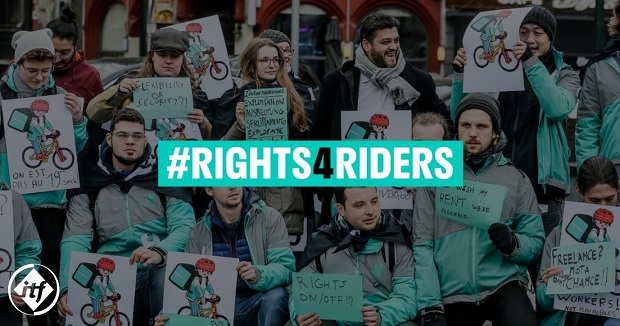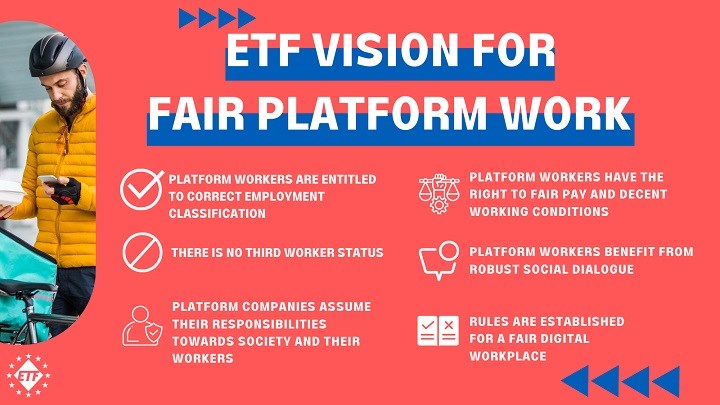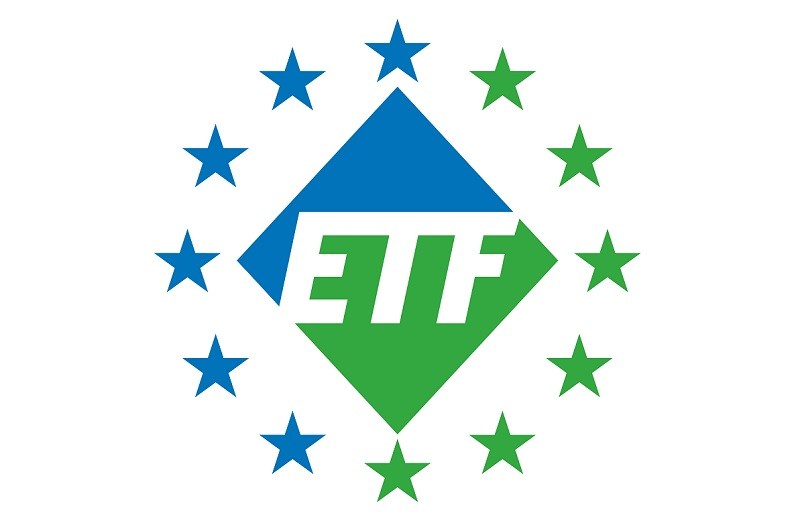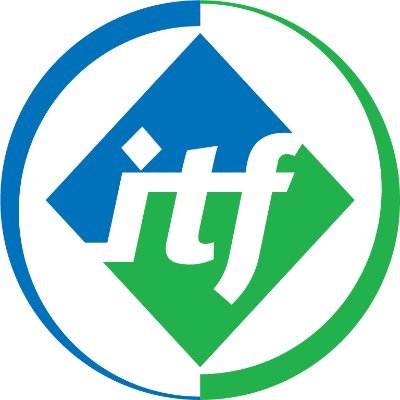An opinion by the voices of transport workers: European Transport Workers' Federation (ETF) and International Transport Workers' Federation (ITF).
Last week, we celebrated International Workers' Day. A day to commemorate past achievements of the workers' movement and to look forward. While the world of work has changed significantly since we first started celebrating May 1, the need to ensure decent work remains. This rings especially true for the millions of platform workers who are denied basic labour rights.
Delivery apps' riders have worked tirelessly throughout the pandemic as millions of Europeans replaced their proverbial Friday night out with takeaway. Business for platform companies is booming, and numbers are on the rise. But as riders continue to ring bells and deliver food, alarm bells have been ringing as their precarious working conditions make headlines. At the European Transport Workers' Federation (ETF) and International Transport Workers' Federation (ITF), we believe it's time for robust regulatory change.
By and large, platform companies continue to deny delivery riders basic workplace rights such as minimum wage, holiday and sick pay. According to a recent analysis by the Bureau of Investigative Journalism of invoices, UK Deliveroo riders can earn as little as £2 an hour.
Platform companies remain reluctant to change despite losing numerous court cases around Europe, massive fines and new national laws intended to strengthen riders' labour rights. Instead, they have tried to capitalise on the growing number of orders caused by lockdowns by raising billions from speculative investors, like Deliveroo's recent IPO on the London Stock Exchange.
The costs of platform work to society are also significant. According to estimates by the Dutch trade union FNV, approximately €32 million are lost per year in the Netherlands due to lower income tax and lack of pension contributions for Deliveroo and Uber Eats riders. As platform companies claim to be service intermediaries, they also avoid paying billions of euros in VAT.
Thanks to global pressure, such as the ITF and ETF backed #Rights4Riders campaign highlighting Deliveroo's mistreatment of workers; numerous investors refused to buy shares during its initial public offering. The company's value decreased by around 30% as soon as it went on the stock market. At the same time, some platforms, like JustEat decide to change their business model and employ their workers.
But neither this spectacular flop nor voluntary declarations alone are enough to solve the precarious working conditions faced by platform workers.
As unions, we know that self-regulation of the gig economy is pure fantasy. Governments cannot continue to kid themselves into thinking otherwise.
Only a robust legislative framework that curbs their unfair business model and practices from the start will ensure fair regulation. At the same time, transport workers and unions must have a voice in shaping the future of work in Europe.
That's why, at the global level, the ITF's gig economy employer principles outline a vision for ending exploitation in the gig economy. The ETF further details this vision in its Manifesto for Fair Platform Work.
What's key is that any regulatory proposal must, by all means, avoid creating a third worker status which would grant platform workers less than equal rights. This would create a sub-class of employees and set a dangerous trend that could very well spread to other sectors.
It's time to treat platform companies as employers and for them to fulfil their obligations accordingly.
The Commission's proposal for an EU initiative on platform work – foreseen to be released later this year – needs to sing the same tune. There's far too much at stake for workers in Europe for them to get it wrong.
The European Commission and governments must now commit to ending platforms' unfair business practices and send them a clear message: You are welcome in Europe, but Europe is not your playground. You are not above the law. You cannot treat workers like they are disposable commodities. Pay your taxes and social contributions. Plain and simple.
About the ETF
The European Transport Workers' Federation (ETF) is a pan-European trade union organisation of more than 200 transport unions from the European Union, the European Economic Area, and Central and Eastern Europe, representing over 5 million transport workers in 40 European countries. We believe transport workers deserve dignity and fair working conditions. Our work is driven by our vision for Fair Transport: quality jobs for transport workers and a safe, reliable and affordable service for users.
Facebook: @ETF.Europe
Twitter: @ETF_Europe
About the ITF
The International Transport Workers' Federation (ITF) is a democratic global union federation of nearly 700 transport workers trade unions representing around 20 million workers in 150 countries. The ITF works to improve the lives of transport workers globally, encouraging and organising international solidarity among its network of affiliates. The ITF represents the interests of transport workers' unions in bodies that take decisions affecting jobs, employment conditions and safety in the transport industry.
Facebook: @ITFglobal
Twitter: @ITFglobalunion





